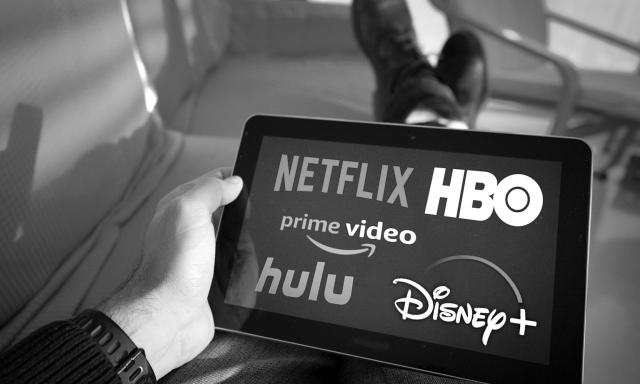
Star-Spangled Shoppers: International Politics Drive Buying Choice
As strange as it may seem, patriotism can weigh in when you walk down a supermarket aisle eyeing what to buy. And that surprising discovery can help global companies and policymakers better strategize.
In our recent study, we found that nationalism — that feeling of pride and love for one’s country — can hold sway over what you choose to buy, consciously or unconsciously. And international politics, such as war or even political disagreements, can push consumers to buy one supermarket brand while spurning another.
Existing research implicitly assumes your national identity is fixed, and its effect on what you buy is more or less static. But as it turns out, national identity’s influence on supermarket brand choices varies a lot with environmental circumstances, and the intensity of your national identity can change; international events can make a person’s nationality more salient on their purchases. Essentially, the study’s findings show that during such events, just the very fact that you’re American can make you more inclined to purchase brands you think are American made.
In the study, we analyzed the 2003 dispute between the U.S. and France over the U.S. led invasion of Iraq. France adamantly opposed the war.
The dispute played out across newspapers, TV and on news shows such as one hosted by Fox News commentator Bill O’Reilly. O’Reilly told listeners he was “about to say good-bye to Roquefort dressing, farewell to Louis Vuitton, au revoir to Yves Saint Laurent.” Anti-French sentiment in America grew to such intensity that the item “French fries” listed on the menu in three Congressional cafeterias was rewritten to read “freedom fries.”
With that simmering political backdrop, we looked at data derived from supermarket purchases to determine if the dispute influenced the shoppers. Why supermarkets? Shopping for groceries is an activity that virtually everybody engages in, it’s exceptionally well documented and it’s both consistent and frequent. In that sense, it’s hard to think of another area with such rich detail of observable economic behavior.
The strategy was to focus French-sounding supermarket brands. American shoppers incorrectly assumed the brands were imported because of their French-like names such as TRESemmé shampoo and Raison d’Ệtre beer. These particular items provided the cleanest measure of consumer sentiment toward France. We wanted to look at how Americans reacted to the conflict, and if we were looking at objectively French brands, there could be other unobserved characteristics of French imports that influence our results, such as transportation or insurance costs that could have gone up. But French sounding brands’ only exposure to France is through the sharp decline in Americans’ opinions about France. In fact it turns out that several French-sounding supermarket brands were not manufactured by French companies.
Gathering data during each week of 2003, we analyzed same-store changes in brands’ market shares as compared to the same week in 2002. We examined data from more than 1,100 U.S. supermarkets nationwide and observed sales of up to 8,000 brands across 27 product categories.
The study estimated the difference in same-store brand market share over the previous year while controlling for price changes and product availability. Sales of French sounding brands declined in the weeks with more media coverage of the dispute. At the height of the U.S.-French dispute over the Iraq War, which began on 20 March, the data showed that the brands shoppers associated with France saw a 0.4 percent average decline in store market share as compared to the same week in 2002. That translates into a $43 million loss in sales during the week of 16 March.
These findings also suggest that the higher proportion of U.S. citizen shoppers in a given area, the sharper the decline in sales of French-sounding brands.
The results show an even tighter connection between consumer behavior and politics, one that’s universal. Chinese shoppers, for example, will act the same way if faced with political disagreements or war.
Sales of American-sounding brands in foreign countries can even inform U.S. foreign policy. Brand sales data are captured frequently for much of the world and can provide nearly real-time feedback about the effects of U.S. policies on foreign sentiment toward the U.S.
Now you can measure that hidden cost of international politics to global companies like Coke and McDonald’s, which are selling to a billion plus consumers around the world. And vice versa, those companies are the ambassadors of United States; they hold a lot of sway with consumers. They carry America with them.
Rajkumar Venkatesan co-authored “French Roast: Consumer Response to International Conflict — Evidence From Supermarket Scanner Data,” forthcoming in The Review of Economics and Statistics, with colleague Sonal S. Pandya of the Woodrow Wilson Department of Politics at the University of Virginia.
Professor Venkatesan teaches in the Darden Executive Education program Management Development Program: High-Performance Leadership, in which participants prepare to take on increasing executive responsibilities and lead a culture of high-performance.















